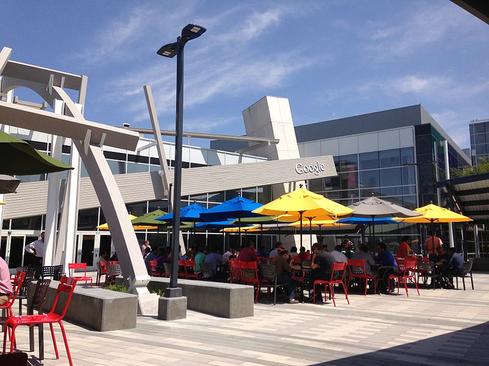Google's Atlas Robot Takes A Walk In The Woods
Designed to rescue humans trapped in dangerous terrain, the Atlas robot looks like a punch-drunk Terminator on the loose. It's the latest from Google and its Boston Dynamics firm.


10 Google Milestones: From Stanford Dorm To Alphabet
10 Google Milestones: From Stanford Dorm To Alphabet (Click image for larger view and slideshow.)
Boston Dynamics, an engineering and robotics design company owned by Google, released a video of a rescue robot named Atlas designed to venture into dangerous territory to help humans in need.
Atlas is described by Boston Dynamics as a high mobility, humanoid robot designed to negotiate outdoor, rough terrain.
In a video, Atlas can be seen walking bipedally, which leaves its upper limbs left free to lift, carry, and manipulate the environment.
Atlas includes 28 hydraulically actuated degrees of freedom, two hands, arms, legs, feet and a torso. The rescue robot also has articulation in the hands that allow it to use tools designed for humans.
In addition, an articulated sensor head includes stereo cameras and a laser range finder. Atlas is powered from an off-board, electric power supply from a flexible tether.
Atlas is powerful and coordinated enough to climb using hands and feet, which allows it to navigate its way through extremely challenging terrain and congested areas.
In the video, Boston Dynamics' founder, Marc Raibert, explained that the focus with Atlas was on balance. They wanted to make the robot move quickly; similar to the way people and animals do in order to stay balanced.
"We're interested in getting this robot out into the world," Raibert explained in the video. "Out in the world is just a totally different challenge than in the lab. You can't predict what it's going to be like…all kinds of stuff happens out there."
According to Raibert, the company is making "pretty good progress" on developing mobility that is within the general parameters of human movement.
"I'm not saying it can do everything you can do, but you can imagine if we keep pushing, we'll get there," he said.
The video quickly went viral and prompted several web commentators to observe that the stumbling, punch-drunk amble of the robot might instill more fear than comfort in the distressed parties.
[Read about why CIOs should care about robots and AI..]
While perhaps not as viscerally terrifying or sinister as the futuristic robots from The Terminator films, which boast capabilities that remain relegated to the world of science fiction, robots and artificial intelligence (AI) continue to spark fear for some. In fact, a group of concerned scientists, researchers and academics, including Stephen Hawking and Tesla founder Elon Musk, warned in a letter that the development of AI could spark a new global arms race.
"Artificial Intelligence (AI) technology has reached a point where the deployment of such systems is -- practically if not legally -- feasible within years, not decades, and the stakes are high: autonomous weapons have been described as the third revolution in warfare, after gunpowder and nuclear arms," the letter warns. "Starting a military AI arms race is a bad idea, and should be prevented by a ban on offensive autonomous weapons beyond meaningful human control."
If the Boston Dynamics video and the resulting fantasies of marauding robots makes you feel uncomfortable, you'll be pleased to know many of the contestants at this year's DARPA robotics championship -- held since 2011-- yielded some hilarious videos of inept machines attempting to perform simple tasks, like opening a door or attempting to exit a vehicle.
About the Author
You May Also Like






